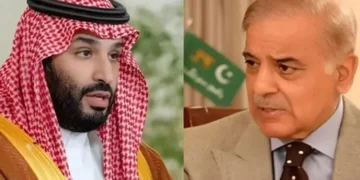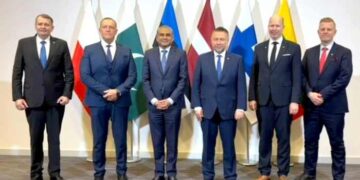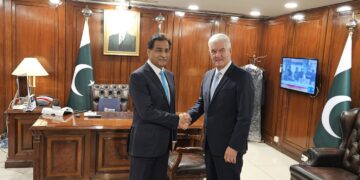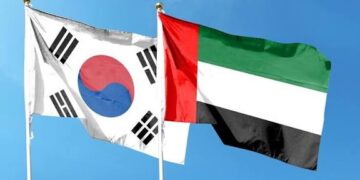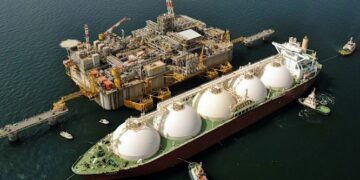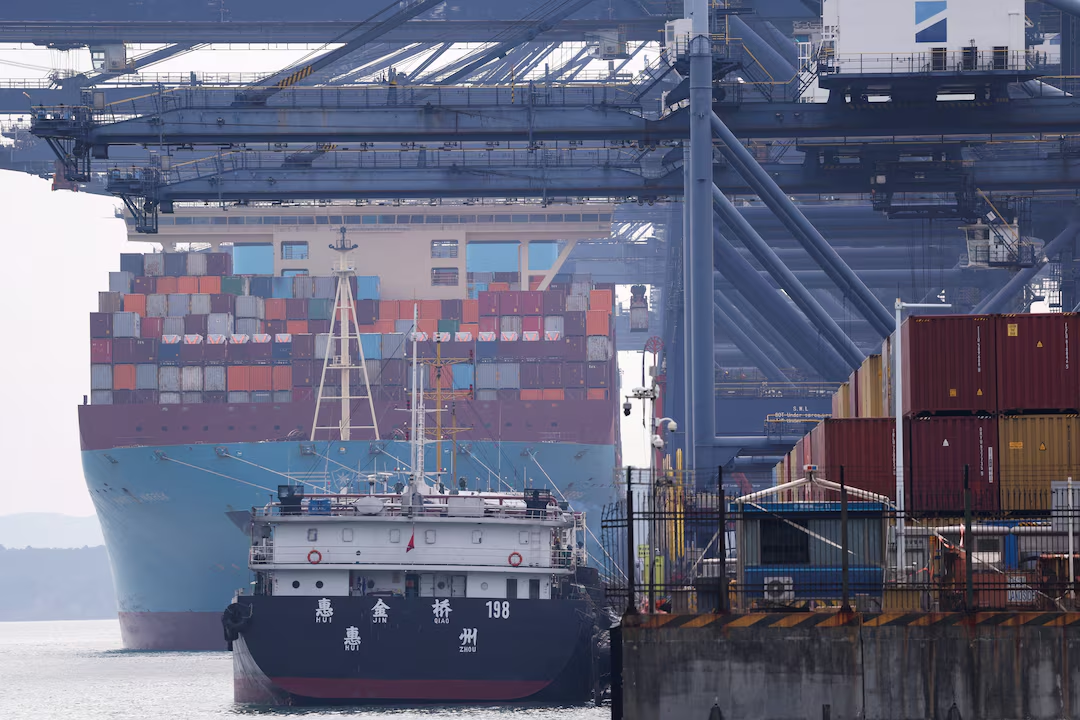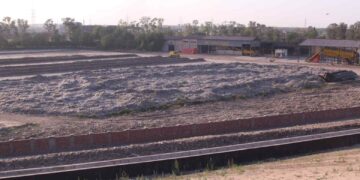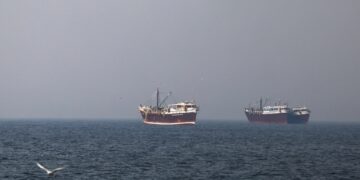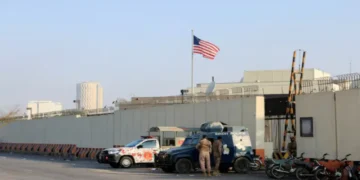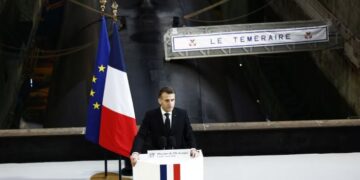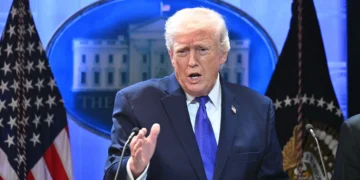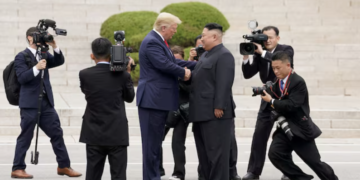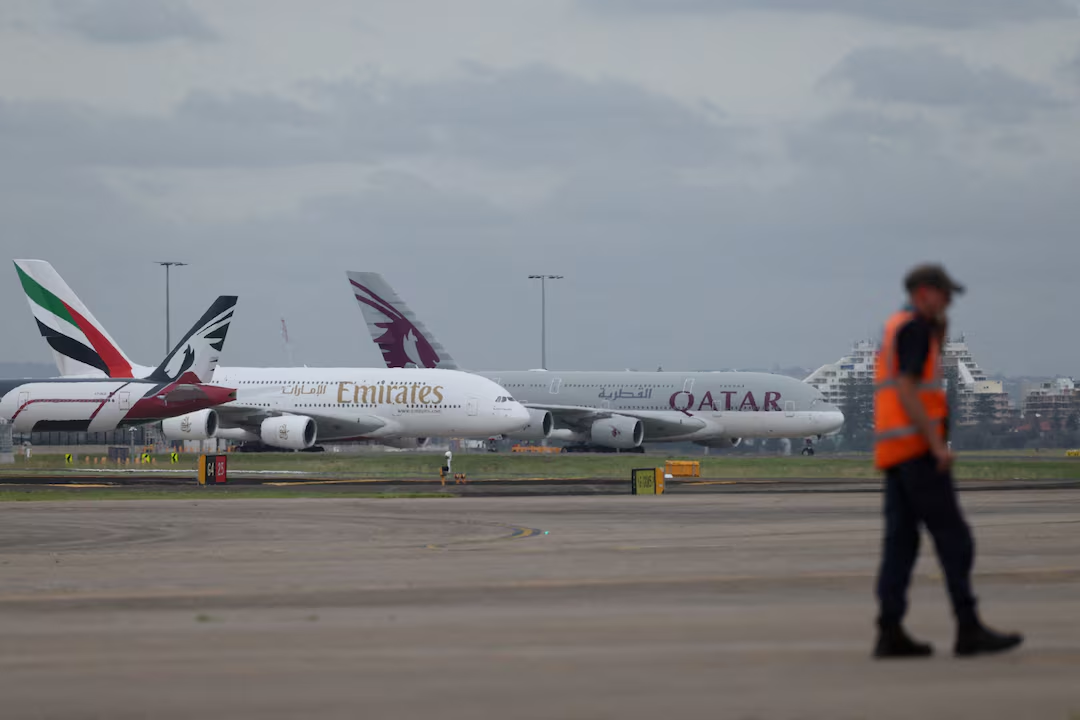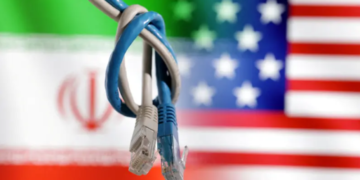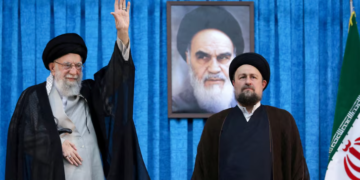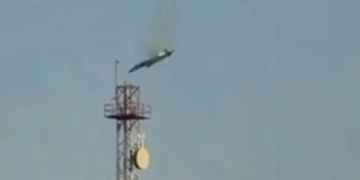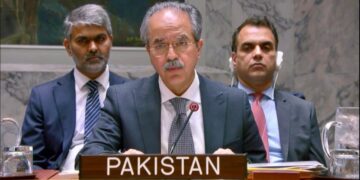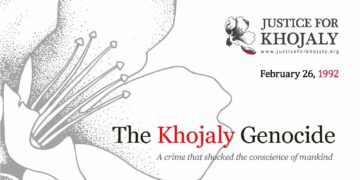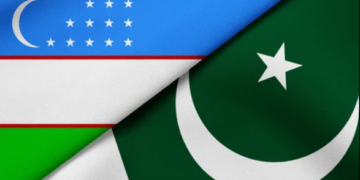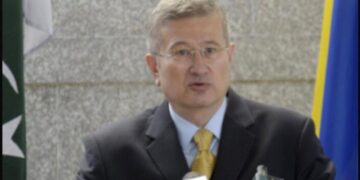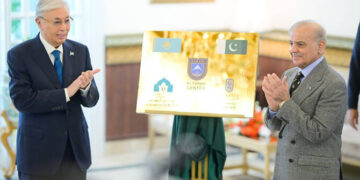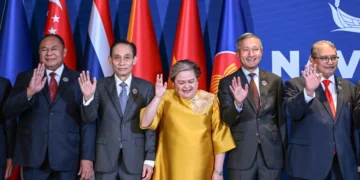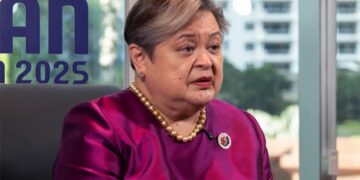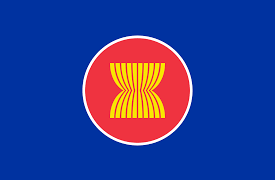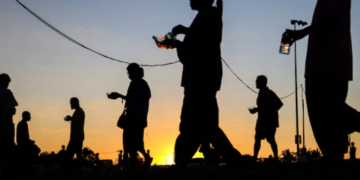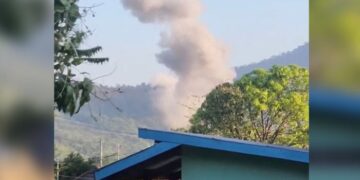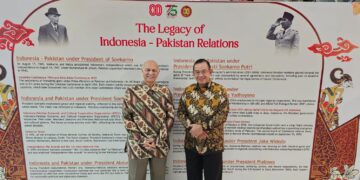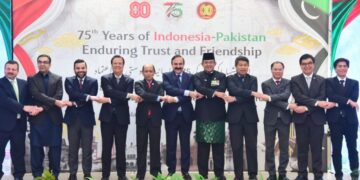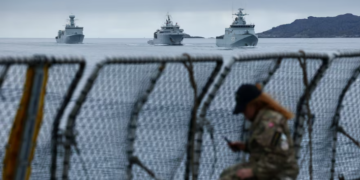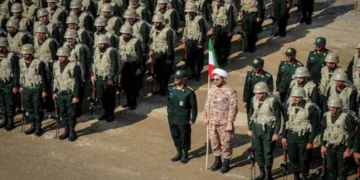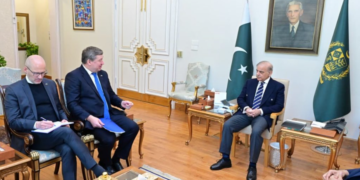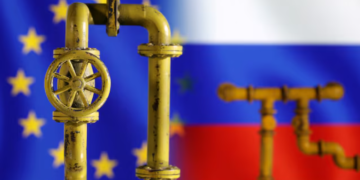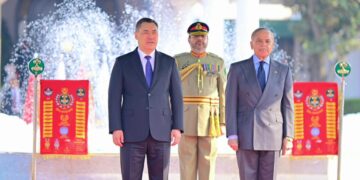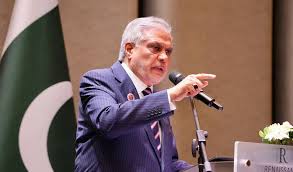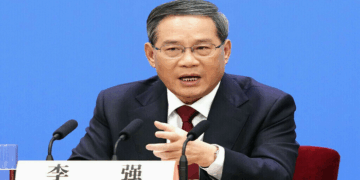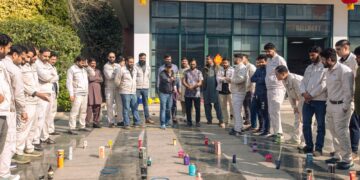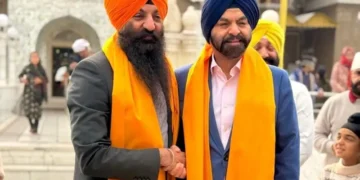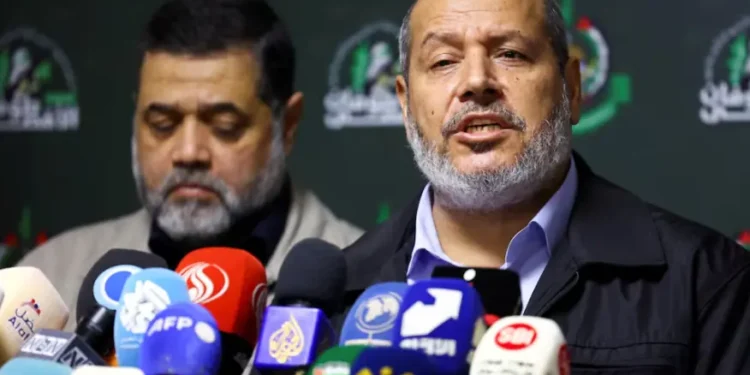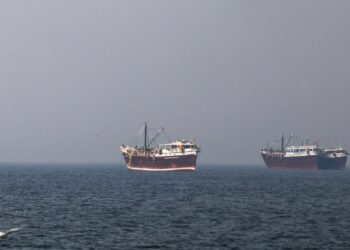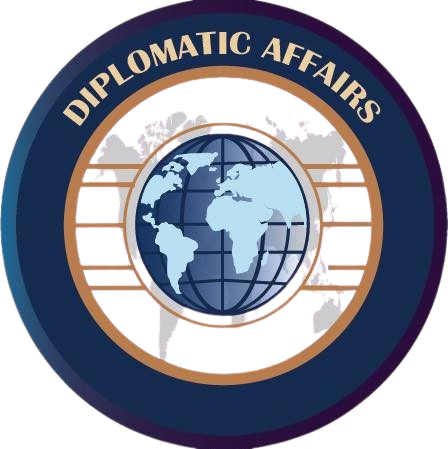Web Desk; Khalil al-Hayya, a senior Hamas official and one of the group’s most influential figures abroad, was among those targeted by Israel in a rare strike on Qatari soil on Tuesday.
The attack, which shook Doha with several loud explosions and thick plumes of smoke over the Katara district, has triggered worldwide alarm, with governments and international bodies denouncing it as a violation of Qatar’s sovereignty and a dangerous escalation.
Hayya’s Rising Role
Al-Hayya has become a central player in Hamas leadership since the deaths of Ismail Haniyeh and Yahya Sinwar last year. Haniyeh, the former Hamas political chief, was killed in an Israeli strike in Tehran in July 2024, while Sinwar, Hamas’s Gaza leader, was killed in Gaza in October. Together with three others, Hayya now forms the five-man council guiding the group.
Born in Gaza in 1960, Hayya joined the Muslim Brotherhood in the early 1980s, alongside Haniyeh and Sinwar, before Hamas was officially founded in 1987. Over decades of activism, he endured multiple detentions by Israel and lost close family members to Israeli airstrikes. In 2007, an Israeli strike on his family home in Gaza City’s Sejaiyeh neighborhood killed several relatives, and during the 2014 Gaza war, his eldest son Osama, along with Osama’s wife and three children, were killed in another air raid.
Although Hayya left Gaza years ago, settling in Qatar as Hamas’s representative for relations with the Arab and Islamic world, he has remained at the forefront of the movement. He accompanied Haniyeh on his final trip to Tehran and has been Hamas’s lead negotiator in ceasefire talks, particularly in attempts to exchange Israeli hostages for Palestinian prisoners.
Hayya himself has said that Hamas’s October 7, 2023 attack on Israel was initially intended as a limited operation to capture Israeli soldiers for a prisoner exchange, but “the Zionist army unit completely collapsed,” leading to the broader conflict. He argued that the assault brought the Palestinian question back to the center of international attention.
Confusion Over Casualties
Initial reports following the blasts in Doha suggested top Hamas figures, including Hayya, may have been killed. Israeli media cited officials claiming the operation specifically targeted him and other senior leaders.
However, Hamas representatives insisted their negotiating delegation in Doha had survived. A member of Hamas’s political bureau, Suhail al-Hindi, confirmed to Al Jazeera that the leadership targeted in the strike was safe. A Hamas representative in Pakistan also told reporters that claims of negotiators being killed were “not correct.”
International Reactions
The attack immediately drew widespread condemnation.
Pakistani Prime Minister Shehbaz Sharif denounced what he called Israel’s “heinous bombing” in Doha, saying it endangered innocent civilians and violated Qatar’s sovereignty. He expressed solidarity with Qatar’s leadership and people, calling the assault a reckless provocation that threatened regional stability.
United Nations Secretary-General Antonio Guterres described the strike as a “flagrant violation” of Qatar’s sovereignty and praised Doha’s role in facilitating ceasefire negotiations in Gaza. He urged all parties to work toward a lasting truce, not undermine it.
Pope Leo, in an uncharacteristically blunt statement outside his summer residence, warned of the “very serious” consequences of Israel’s action, signaling heightened Vatican concern.
Regional powers also reacted sharply. Turkey said the attack proved Israel had adopted “expansionist politics and terrorism” as state policy, while the UAE called it a “blatant and cowardly” act. Iran condemned it as a “gross violation” of international law, accusing Israel of undermining regional security. Saudi Arabia likewise denounced the strike in “the strongest terms,” declaring full solidarity with Qatar.
Qatar itself issued a furious response. Its foreign ministry condemned the attack as a criminal act targeting residential areas where Hamas political leaders were present. The statement warned that Doha would not tolerate Israel’s “reckless behavior” and pledged investigations at the highest level.
U.S. Involvement and Diplomacy
The White House confirmed that Israel had informed Washington in advance of the strike. Qatar is a key U.S. ally, hosting the al-Udeid Air Base, America’s largest military facility in the Middle East. A U.S. official, speaking anonymously, said the administration was notified beforehand but did not elaborate on whether Washington had approved the move.
Meanwhile, the U.S. Embassy in Doha instructed its staff to shelter in place following reports of missile strikes, urging American citizens to follow embassy social media for updates.
Israeli media claimed former President Donald Trump gave approval for the strike, though U.S. officials did not publicly confirm the report. The Israeli military, for its part, acknowledged striking Hamas leaders in Doha and said it had taken measures to minimize civilian casualties, using precision munitions and intelligence.
Wider Implications
The attack underscores the widening scope of Israel’s campaign against Hamas, extending beyond Gaza, Lebanon, and Iran into the Gulf state of Qatar. Hamas leaders based in Doha have been key figures in negotiations over ceasefire and hostage exchanges. Targeting them on Qatari territory not only escalates the conflict but also risks destabilizing relations with countries that have mediated in the conflict.
Hamas leader Khaled Mashaal, who narrowly survived an Israeli assassination attempt in Jordan in 1997, was also reported to have been at a meeting targeted in Tuesday’s strike. Preliminary reports from Al Arabiya suggested Hayya may have been killed, though Hamas has denied this.
Video footage circulating on social media showed people fleeing as explosions thundered across the Katara district. Eyewitnesses described multiple blasts and rising columns of smoke over Doha.
Global Condemnation
The chorus of disapproval from international actors highlights the gravity of Israel’s move. From the UN to the Vatican, and from Islamabad to Riyadh and Ankara, leaders voiced concern that striking Hamas officials in Qatar not only violated the sovereignty of a neutral state but also undermined ongoing negotiations for peace in Gaza.
For Hamas, the attempted assassination in Doha—whether successful or not—marks another chapter in its decades-long conflict with Israel. For Qatar, it represents a direct challenge to its role as mediator and a threat to its own stability. And for the wider region, the incident raises fears that the war, now nearly two years old, may spill into yet another arena, making peace ever more elusive.

